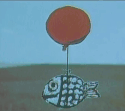|
In Japanese Destroyer Captain Hara describes sending a letter back to the girl who sent his package but I don't know if it actually made it back. It's hard to imagine the logistics making that possible but maybe they made an exception for senior officers.
|
|
|
|

|
| # ? May 1, 2024 08:57 |
|
Cyrano4747 posted:I was one of the kids writing those letters. Yep. I was 10 in 1991. They made us all write something, and I remember drawing some picture with tanks and planes (and probably stick figure soldiers, I was only good at the tanks and planes). FuturePastNow fucked around with this message at 15:59 on Apr 10, 2024 |
|
|
|
Fangz posted:In Japanese Destroyer Captain Hara describes sending a letter back to the girl who sent his package but I don't know if it actually made it back. It's hard to imagine the logistics making that possible but maybe they made an exception for senior officers. The IJN and IJA both had mail services, I don't know a lot of details about them but would be really surprised if this was something only a senior officer could do or even considered especially difficult. They wouldn't take an individual envelope and courier it directly to the girl, but would take the letter addressed to someone in Japan, put it in with other letters back home, and transfer all of the letters to other ships, which would eventually get it to the home islands where it would then be delivered by regular mail services. Soldiers and sailors sent and received letters all the time, at least until the end of the war when supply lines mostly collapsed.
|
|
|
|
Cyrano4747 posted:I was one of the kids writing those letters. We were pretty sure we were going to die too, so it was good to hear from someone - anyone - living a normal life back home at the time. Grim as it may have been, thank you for sending the letters; it was great to get them.
|
|
|
|
Has there been any other conflict in history where everyone was just loving sure they were going to run into a meat grinder and had that kind of fatalistic outlook only to have poo poo go near perfectly with far, far fewer casualties? Kind of the opposite of the "kicking in a rotten door" hubris of something like Barbarossa. Maybe the Germans in France in 1940. A lot of people there thought they were signing up for the WW1 trenches part 2 and were pretty elated when it went as it did. Not sure that counts, though, given everything that happened after June 1940.
|
|
|
|
Definitely France in WW2, no question about it. There's a reason Germany invested more into its western fortifications than France did. Everyone expected a prolonged war on that front. That it was over so quickly was a huge boost in the popularity and support for the Nazi regime. Operation Barbarossa would also count in the amount of destruction inflicted, but would failin what followed afterwards.
|
|
|
|
|
As far as individual battles go there were several amphibious landings in the pacific that had insane casualty projections and the marines were sure they were going to die and then the Japanese ended up not contesting the landings and they just walked up the beach. It got really bad as they got further in but I can't imagine that relief when the beach isn't the absolute bloodbath you were expecting.
|
|
|
|
|
In the current ACOUP series Devereaux details a few campaigns between the Romans and Hellenistic kingdoms in Macedonia and Anatolia where it looked like the Romans were going to be walking into a meat grinder and then they walk away with the victory and trivially few casualties.
|
|
|
|
CommonShore posted:In the current ACOUP series Devereaux details a few campaigns between the Romans and Hellenistic kingdoms in Macedonia and Anatolia where it looked like the Romans were going to be walking into a meat grinder and then they walk away with the victory and trivially few casualties. Ha! I'd like to see ol' Laevinus wriggle his way out of THIS jam!
|
|
|
|
Now that we have Caesar out of our hair for a year or two, let's -- Text message notification sound
|
|
|
|
D-Pad posted:As far as individual battles go there were several amphibious landings in the pacific that had insane casualty projections and the marines were sure they were going to die and then the Japanese ended up not contesting the landings and they just walked up the beach. It got really bad as they got further in but I can't imagine that relief when the beach isn't the absolute bloodbath you were expecting. I think this is the winner, because after the first couple of battles in the island hopping campaign everyone knew that if there was a fight then it was going to be an awful contested landing followed by a series of frontal assaults against fortified positions because there's literally no other option and the enemy won't give up.
|
|
|
|
Cessna posted:We were pretty sure we were going to die too, so it was good to hear from someone - anyone - living a normal life back home at the time. Grim as it may have been, thank you for sending the letters; it was great to get them. At what point did you realize that the Iraqi military was somewhat overhyped, or did that sense of danger stay with you the whole time?
|
|
|
|
zoux posted:At what point did you realize that the Iraqi military was somewhat overhyped, or did that sense of danger stay with you the whole time? About the time we were driving back to Al Jubail. We captured a lot of prisoners after the first day or so, but didn't really understand that this was how ALL of the Iraqi army was. We figured that those guys were sacrificial speed bumps and that it was likely there would be a real defense or counterattack at some point.
|
|
|
|
Iím reading a book about trade written by an economist and a lot of the history is causing me to wince. There was one claim I wanted to check up on though - at one point, discussing the Treaty of Tordesillas, he makes the claim that all Catholic monarchs were theoretically vassals of the Pope, with their crowns leased back to them in return for tribute. This feels like a mangled interpretation of tithing and investiture but Iím curious how much actual theoretical basis there is for something like this. I know in China and Japan you do get situations where the emperors claim to theoretically own all land but I wasnít aware the Catholic Church made a similar claim. Was there something to this or was the guy talking out his rear end?
|
|
|
Tomn posted:Iím reading a book about trade written by an economist and a lot of the history is causing me to wince. There was one claim I wanted to check up on though - at one point, discussing the Treaty of Tordesillas, he makes the claim that all Catholic monarchs were theoretically vassals of the Pope, with their crowns leased back to them in return for tribute. The Catholic Church did claim ownership of Western Europe based on the forged Donation of Constantine which allegedly handed over control of the Western Roman Empire to the Pope, which was taken at various levels of seriousness until the 15th Century when it was proven to be a forgery. Also there was the centuries long conflict within the Holy Roman Empire between do emperors appoint popes? Or do popes appoint emperors? With the answer honestly being it depends on the relative strength of the emperor and the pope. And there were various I want to call tactical appeals to the popes pretensions of universal monarchy where a monarch in trouble (John I of England comes to mind) would swear allegiance to the pope in the hope of using the popes moral and spiritual authority as a shield of protection against trouble.
|
|
|
|
|
That said, the control of the papcy over any of that was always extremely nominal and I doubt you could find a monarch in Europe who would agree that they were a "vassal of the pope" in any kind of secular way.
|
|
|
|
If you're really compressing down all the political dynamics of medieval Europe, the Pope and church being a major source of legitimacy meant that basically all big monarchs most of the time operated with the symbolic okay from the Pope (either through the proper channels or somehow forged). Although in theory the Pope was also a stand-in for God's approval. But using the language of secular medieval rule like "vassal" or "tribute" is overlooking the way things actually worked. The Pope's nominal authority over big secular rulers was much less relevant than his much more real authority over all the clergy (as well as the secular lands they controlled), and the church being an independent entity and its internal authority constantly clashing with that of secular rulers is a major defining aspect of medieval politics. And when you're talking about "leasing their crowns", I'm not really sure what the whole accounting situation was between kings and the Pope, but I think at that point you're basically just making poo poo up. I think coronation might involve a lot of money passing hands to grease the whole process and ensure the church's support, but it's definitely not seen as anything like purchasing a lease. The whole coronation process on its own was a big expensive party to show off that the new king's got a lot of money to throw around and cement the whole legitimacy affirming in everyone's eyes.
|
|
|
|
Royal Naval Division at Antwerp and "The Affair at Moebeke" - Part 2 Withdrawal With the Belgians leaving the city, the RND were left without what little artillery support they had enjoyed to this point and were deprived of what meagre food and administrative support the Belgians had been able to provide. By the end of the day General Paris had decided that the Division's position was untenable, that no effective delaying action (let alone defence of the city) could be mounted and that the Division had to be withdrawn in order to prevent its capture or its destruction. Paris had moved his headquarters to the western side of the Scheldt in the suburb of Zwyndrecht, reached from the city via a temporary bridges of barges acting as pontoons. This would be the rendezvous point for the three brigades, withdrawing in two movements - the 1st Brigade retreating through the city and across the pontoon bridge just south of the docks, and the 2nd Brigade staying outside the walls and crossing to Zwyndrecht almost directly via a pontoon bridge at Burcht. The Marine Brigade would cover the withdrawal, following the route of the 2nd Brigade.  General Paris' plan for the withdrawal of the RND from Antwerp. This is not how it happened. Orders were quickly drafted and distributed, to be acted on immediately upon receipt. Staff officers were sent to personally hand the orders to the brigade commanders. The 2nd and Marine Brigades received their orders and, as dictated, the 2nd Naval Brigade immediately began its movement to the northwest and the Burcht pontoon while the Marines made preparations but held their position until evening. The officer delivering the orders to the 1st Brigade made an error in identity. Supposed to give the order to Commodore Henderson, commanding officer of the Brigade, he encountered Commander Campbell, OiC of Drake Battalion of that brigade, and delivered the order to him. In turn, Campbell assumed that other battalions were getting their own copies of the orders and so began to move his unit out, while the rest of the 1st Naval Brigade stayed put. It was not until 7pm - four hours after they were supposed to leave - that the staff officer assigned to the Marine Brigade, on his way to deliver the final order to withdraw to the marines, found the other three battalions of the 1st Brigade still in their trenches. Even so, the urgency of the order was not properly conveyed and Benbow, Hawke and Collingwood battalions did not start to move until 10pm, by which time the Marines that were supposed to be the rearguard had already crossed the Scheldt. Fortunately one battalion of the Marine Brigade, the Portsmouth, had been detailed to wait behind in support.  The Royal Naval Division leaving Antwerp as the city fell, as depicted by The Graphic in October 1914. Further communications breakdowns followed. As the 2nd Brigade, three quarters of the Marine Brigade and Drake Battalion of the 1st Brigade assembled at Zwyndrecht, the fact that elements of all three brigades were present reached General Paris as all three being present as planned, and he ordered an immediate withdrawl to Beveren, where trains could be laid on to Ostend. This march of approximately four miles was planned to take two hours. When the tired and hungry sailors reached the station at Beveren, after a cold march on narrow, unlit country lanes, it was apparent they had been misinformed and the railhead was now at the next station along the line at St. Gillaes-Waes, nearly six miles further west. On this trying final march the inexperience of the men and their officers, and the paucity of experienced senior rates, began to tell. Morale, which had been high up to this point, began to flag. Encouragement from officers became cajoling which turned to berating. Having previously been executed in good order, the Division began to string out along the road and across the fields between Beveren and St. Gillaes-Waes as men fell behind, stopped to rest or unthinkingly plodded down side lanes, often leading equally plodding groups of men behind them astray in the process.  A sketch map on modern Google Earth of the route taken by the 2nd Brigade and assorted other units out of Antwerp with General Paris - Beveren, then across country to St. Gillaes-Waes, then train westward to Gent and Ostend. The more experienced Royal Marines found the situation especially pitiful. Unfamiliar with cross-country marching, the sailors initially set a blisteringly keen pace with no thought to endurance in the hours to come. They left the Marines behind, paused to rest and immediately set off again as the rearguard came into view, denying the Marines their own pause. Of course that came later as the naval units tired while the Marines kept up their more sustainable pace. The Marine officers found their naval counterparts enthusiastic and willing but unfortunately lacking in experience of leading or encouraging men in tough circumstances. Leading men with high morale off on an adventure while foreign women give them coffee and flowers was one thing, but keeping tired, hungry, frightened men together on a dark, cold night in the Belgian countryside was a challenge that a lot of the RNVR men, only six weeks into their commissions, were simply not able to tackle. None the less, they all made it to St. Gillaes-Waes. Every single man in the part of the RND withdrawn under General Paris made it onto a train to Ostend and within a few days were back in their camp at Deal. Internment That left the three battalions of the 1st Naval Brigade and the Portsmouth batallion of the Marine Brigade. They left the city by different routes - Hawke battalion, accompanied by one company of Marines, crossed the Scheldt by the same pontoon bridge at Burcht that the 2nd Brigade had used. Benbow and Collingwood, with the rest of the Marines, took the route as ordered through the city and found the bridge there had already been destroyed by the Belgians. They had to cross the river by boat and then march to the rendevous at Zwyndrecht. Here too, the Marines were frustrated by the fierce (and ultimately exhausting) pace set by the sailors and the rapid breakdown of cohesion and command in the naval party. Commodore Henderson held his men at Zwyndrecht while he tried to get information on the location of General Paris and the rest of the Division (they were already plodding across the countryside towards Beveren). The delay at least saved Henderson's men the fruitless march to that village, as before leaving they received the same news that would later come to the 2nd Brigade - that trains were only available at St. Gillaes-Waes. This would now be a 10-mile march along back-roads and lanes, most of which proved to be choked with refugees. The battalions again began to disperse and separate, and were forced to move across country rather than be held up on the roads. Confusion still broke through on occasion - Hawke battalion was seized by the idea that they were being attacked by a German Uhlan patrol, formed a two-rank firing line and delivered a burst of rapid fire across a turnip field. When the fire was returned, chaos briefly swept through the Brigade until the CO, Commander Beadle, certain that no German forces could be in the area, managed to restore order. Hawke had in fact engaged a squadron of Belgian cavalry, and it was fortunate that neither side's marksmanship was up to much in the circumstances and no one on either 'side' was so much as injured.  Sketch of the route(s) taken by most of the 2nd Brigade under Cdre Henderson - from Zwyndrecht, cross-country to St. Gillaes-Waes then over the Dutch border. St. Gillaes-Waes was reached in the early hours of the morning. A measure of the confusion and disarray that had overtaken the 1st Brigade can be gained by the fact that it took nearly 12 hours for the last of the men to straggle in, after a march of just 10 miles. Commodore Henderson, not wanting to disperse his unit any further, had assembled multiple trains in the station yard and sidings, placing men in carriages and wagons as they arrived but holding the trains with the intention of not sending them off until all the men on the march were accounted for. While the elements of the 1st Brigade were still shuffling in, a dispatch rider delivered a critical blow; a German brigade had swung northwest from the main advance, surged forward and captured the railway junction at Moerbeke, eight miles west along the same railway line that Henderson's men were now embarked on. His men were exhausted, morale was low, discipline and command was fragile. Ammunition and supplies were scarce. Fighting out to the west would, at best, lead to heavy casualties. The main German force was to his east and, by all reports, quickly filling up the land to the south. To the north there was three miles of clear country and then the Dutch border - neutral territory. Any British forces stepping foot on the other side of the border would be interred for as long as the war with Germany lasted. But they would be alive. The men were corralled out of the trains and formed up for one last march. Some did not fancy sitting out the war in a Dutch camp. Not wanting to be interned, Sub-Lieutenant Modin of Benbow Batallion refused an order from his commanding officer to cross the border, called out for volunteers to stay with him and marched off cross-country with around 30 other men. Lieutenant Grant of the same batallion also initially refused to march to Holland, and so was placed under close escort and kept marching near his battalion commander. He carefully ensured that both his batallion CO and Commodore Henderson were across the border ahead of him. With their military authority relinquished once in neutral territory, he stepped aside, shouted "And now military discipline is at an end, come on lads!" and with about 40 men headed for a railhead on the western side of the German block at Moerbeke. They reached Selzaete (where S/Lt Modin's party had also found their way) and caught a train to Bruges and then on to Ostend, where they were in time to personally report to General Paris before he left for Britain. The General escorted them to London to tell the fate of the 1st Brigade to Churchill in person.  Contemporary sketch of the 2nd Brigade of the RND and Belgian refugees departing Ostend after their retreat from Antwerp. After Henderson had presented 1500 British sailors to rather surprised Dutch border guards, they were split into groups for march to temporary billets in nearby barracks and hotels. Lieutenant West, CPO Stewart and LS Shelton of Hawke Battalion slipped away from their group, managed to cross the border back into Belgium undetected and reached Ostend ahead of the German advance. A handful of others managed to evade their Dutch guards in crowds of Belgian refugees as they were transferred by road, rail and ferry, and then get steamers to England. But apart from the few evaders and escapees, some of the 1st Brigade did make it home. Now we come to the story of how several hundred British sailors ended up at Moerbeke. BalloonFish fucked around with this message at 15:05 on Apr 12, 2024 |
|
|
|
How many WW2 combat vets where retained into Korea? Was it mostly officers or did some higher rank enlisted get retained?
|
|
|
|
Defenestrategy posted:How many WW2 combat vets where retained into Korea? Was it mostly officers or did some higher rank enlisted get retained? Hunting through VA records (link) you can find that about 1 in 10 WWII vets also went to Korea. My grandfather stayed in the reserves post-WWII to pay for college and, whoops, three years in Korea.
|
|
|
|
Defenestrategy posted:How many WW2 combat vets where retained into Korea? Was it mostly officers or did some higher rank enlisted get retained? I think it varied greatly depending on where they served. E.g. very few Romanian veterans went there, but among Korean veterans the share was presumably greater. Finnish combat veterans respected the ancient truce and stayed out (Vietnam was allowed however).
|
|
|
|
Nenonen posted:Finnish combat veterans respected the ancient truce and stayed out (Vietnam was allowed however). Is there some ancient relationship between Korea and Finland I wasn't aware of?
|
|
|
|
Defenestrategy posted:Is there some ancient relationship between Korea and Finland I wasn't aware of? I think they're making the finno-korean hyperwar joke
|
|
|
|
You don't start what you can't Finnish.
|
|
|
|
Defenestrategy posted:Is there some ancient relationship between Korea and Finland I wasn't aware of? Some Korean nationalists claim that in the distant past, Korean people controlled most of what is now Asia. Some "race scientists" claim that Finns are actually an Asiatic people. So there's a running joke that these two great empires must have come into conflict thousands of years ago.
|
|
|
|
bob dobbs is dead posted:I think they're making the finno-korean hyperwar joke He's also joking about how the SS-joining piece of poo poo Lauri TŲrni eventually joined the US military and died in Vietnam, but no WW Finnish vets fought in Korea (to his knowledge). Nenonen posted:Finnish combat veterans respected the ancient truce and stayed out (Vietnam was allowed however). He's wrong about that, by the way. Some Finns who were involved in the Weapons Cache Affair fled to US, joined the US military and ended up in Korea. Here's one: https://en.wikipedia.org/wiki/Olavi_Alakulppi Alakulppi was one of "Marttinen's Men", the group of officers who were involved in Weapon's Cache Affair, and who fled via Sweden to the US and were scooped up by the US military. I think they were involved in winter warfare training and there's an urban legend the first ahkio used by US military was introduced by them, but it might be bullshit. Warden fucked around with this message at 20:35 on Apr 13, 2024 |
|
|
|
Warden posted:He's wrong about that, by the way. Some Finns who were involved in the Weapons Cache Affair fled to US, joined the US military and ended up in Korea. Learning by error is the best learning 
|
|
|
|
There's something in Finnish DNA that makes them desperate to lose wars against communists
|
|
|
|
ContinuityNewTimes posted:There's something in Finnish DNA that makes them desperate to lose wars against communists I think it's just "losing wars"-gene in general, since the only war Finland ever won was fought against communists (who were also Finnish), though you could make a decent argument that it was Imperial Germany who won that one. However, I was also unaware that communists won the Korean War and I am now perplexed. Warden fucked around with this message at 06:56 on Apr 14, 2024 |
|
|
Warden posted:I think it's just "losing wars"-gene in general, since the only war Finland ever won was fought against communists (who were also Finnish), though you could make a decent argument that it was Imperial Germany who won that one.
|
|
|
|
|
The Finns won the cold war tho
|
|
|
|
Finland did win Germany in WW2, never forget that!
|
|
|
|
How long would it take someone of the era to load a cap-and-ball revolver?
|
|
|
|
Those RND posts are pretty depressing. Just patriotic kids getting let down by every level of their leadership.
|
|
|
|
zoux posted:How long would it take someone of the era to load a cap-and-ball revolver? A couple minutes, give or take. Depends on how freaked out you are and what else is going on around you. Utterly impossible if you canít sit down or crouch and use both hands - so horseback is right out. Most people didnít really reload them in the heat of the moment. Id you were an officer it was there for close range personal protection, so carried more than used. If you were cav or doing a boarding action on a ship or a cop or someone else who thought they might need more than six shots for self defense you carried multiple guns.
|
|
|
|
None of the models had exchangable cylinders? They don't really show cap-and-ball revolvers being reloaded much in media, I didn't even know they were a thing for years and years (even though half the revolvers in westerns are Navy Colts - though I understand many were converted to take cartridges). I know almost nothing about them. Were they more accurate than your single shot muzzle loaded pistols?
|
|
|
|
zoux posted:None of the models had exchangable cylinders? It entirely depends on the specific type of revolver, but GENERALLY speaking the cylinders weren't removable on most "cap and ball" revolvers as they were front-loading. That is, you'd line the cylinder up with the barrel, push the powder and shot in through the barrel, seat it home, then put the "cap" in place at the back of the cylinder. Detachable cylinders were developed relatively late; by then revolvers with cartridges and other methods of reloading (swing-out cylinders, top-break revolvers, revolvers with a side loading gate) were coming into use. Edit to add: Also, carrying pre-loaded cap-and-ball cylinders is a BAD idea. Yes, it's done in a few Western movies. In reality, DO NOT do it. You're carrying around what is essentially a pre-loaded six-barrel firearm with a VERY delicate firing mechanism (the exposed cap) in your pocket. To give an idea of how heavily discouraged this was cap-and-ball revolvers weren't usually issued or sold with spare cylinders. (Yes, you can buy them now, along with cylinder pouches, but that's for trick shooters or modern non-cap-and-ball pistols, this wasn't really done historically.) It was much more efficient and vastly safer to just carry another pistol. zoux posted:Were they more accurate than your single shot muzzle loaded pistols? They carry six shots instead of one, that's the advantage. Cessna fucked around with this message at 22:12 on Apr 15, 2024 |
|
|
|
Milhist thread, Iíve lived in the dmv for three years and havenít gone to any battlefields. I am sorry. I want to go to one before I move. Antietam and Gettysburg are both equal distance away. Which will be better for nearby amenities? Wife and kid will probably only be good for a couple hours before itís time to go eat / find something more engaging for kids
|
|
|
|
Don't know but I'm praying you finally get your license.
|
|
|
|

|
| # ? May 1, 2024 08:57 |
|
FastestGunAlive posted:Milhist thread, Iíve lived in the dmv for three years and havenít gone to any battlefields. I am sorry. I want to go to one before I move. Antietam and Gettysburg are both equal distance away. Which will be better for nearby amenities? Wife and kid will probably only be good for a couple hours before itís time to go eat / find something more engaging for kids Antitem is probably better with very limited time. Also closer to non battlefield stuff. If youíre super limited Iíd also look at first Bull Run. Itís a tiny battlefield, you can do it in an hour. Close in to a bunch of non battlefield stuff too.
|
|
|
















































